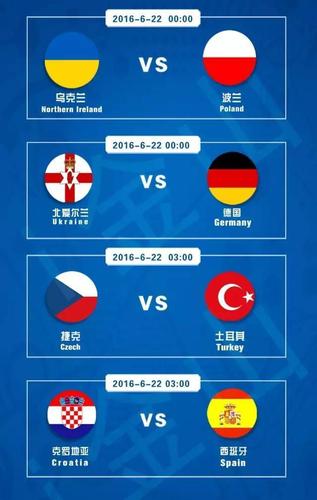The UEFA European Championship, often referred to as the Euros, is one of the most prestigious tournaments in international football. Every four years, the best national teams from Europe compete in a fierce battle to claim the coveted title. Predicting the number of matches a team can win in this tournament is not only a fascinating exercise for football enthusiasts but also a complex task that involves a deep understanding of various factors including team dynamics, player form, historical performance, and tactical strategies.
To begin our analysis, it is crucial to look at the historical performance of teams in the Euros. Traditionally, teams like Germany, Spain, and France have dominated the competition, with each winning multiple titles. These teams have shown consistency in their ability to win matches, which can be attributed to their strong domestic leagues, robust youth development programs, and experienced coaching staff.
For instance, Spain's remarkable run of winning three consecutive major tournaments from 2008 to 2012 showcased their dominance in international football. During this period, they won 15 out of 19 matches in the Euros, demonstrating their ability to maintain a high winning percentage over a series of games.

The current form of players and the overall strength of the squad play a significant role in determining a team's potential to win matches. Teams with a balanced mix of experienced veterans and promising young talents often perform well in tournaments like the Euros. For example, the French team that won the 2018 FIFA World Cup boasted a squad with a blend of seasoned players like Antoine Griezmann and emerging stars like Kylian Mbappe.
Analyzing the recent performance of teams in international friendlies and qualifying matches can provide insights into their current form. Teams that have been consistently winning their matches against strong opponents are likely to carry this momentum into the Euros.
The tactical approach of a team and the acumen of its coaching staff are vital components in a team's success. A coach who can devise effective game plans and make ingame adjustments based on the opponent's strategy can significantly increase a team's chances of winning. Tactical flexibility, such as the ability to switch between defensive and offensive strategies, can be a decisive factor in winning multiple matches.
For instance, the tactical genius of coaches like Joachim Löw and Vicente del Bosque has been instrumental in their teams' success in past Euros. Their ability to adapt their strategies based on the opposition and the match situation has often given their teams an edge.
The Euros are structured in a way that teams must navigate through the group stage before entering the knockout phase. The number of matches a team can win is heavily influenced by their performance in the group stage. Teams that top their groups not only gain confidence but also avoid facing other group winners until the later stages of the tournament.
In the knockout phase, the margin for error is minimal. Teams must win every match to progress, which often leads to more cautious and defensive tactics. The ability to perform under pressure and in highstakes situations is crucial for teams aiming to win multiple matches in the knockout rounds.
Predicting the number of matches a team can win in the Euros involves a multifaceted analysis that considers historical performance, current form, tactical prowess, and the tournament structure. While it is impossible to predict the exact number of wins with certainty, a thorough analysis based on these factors can provide a reasonable estimate.
As the Euros approach, fans and analysts alike will be closely watching the form and preparations of the participating teams. The tournament promises to be a thrilling showcase of skill, strategy, and determination, with each team vying for the honor of being crowned the champions of Europe.